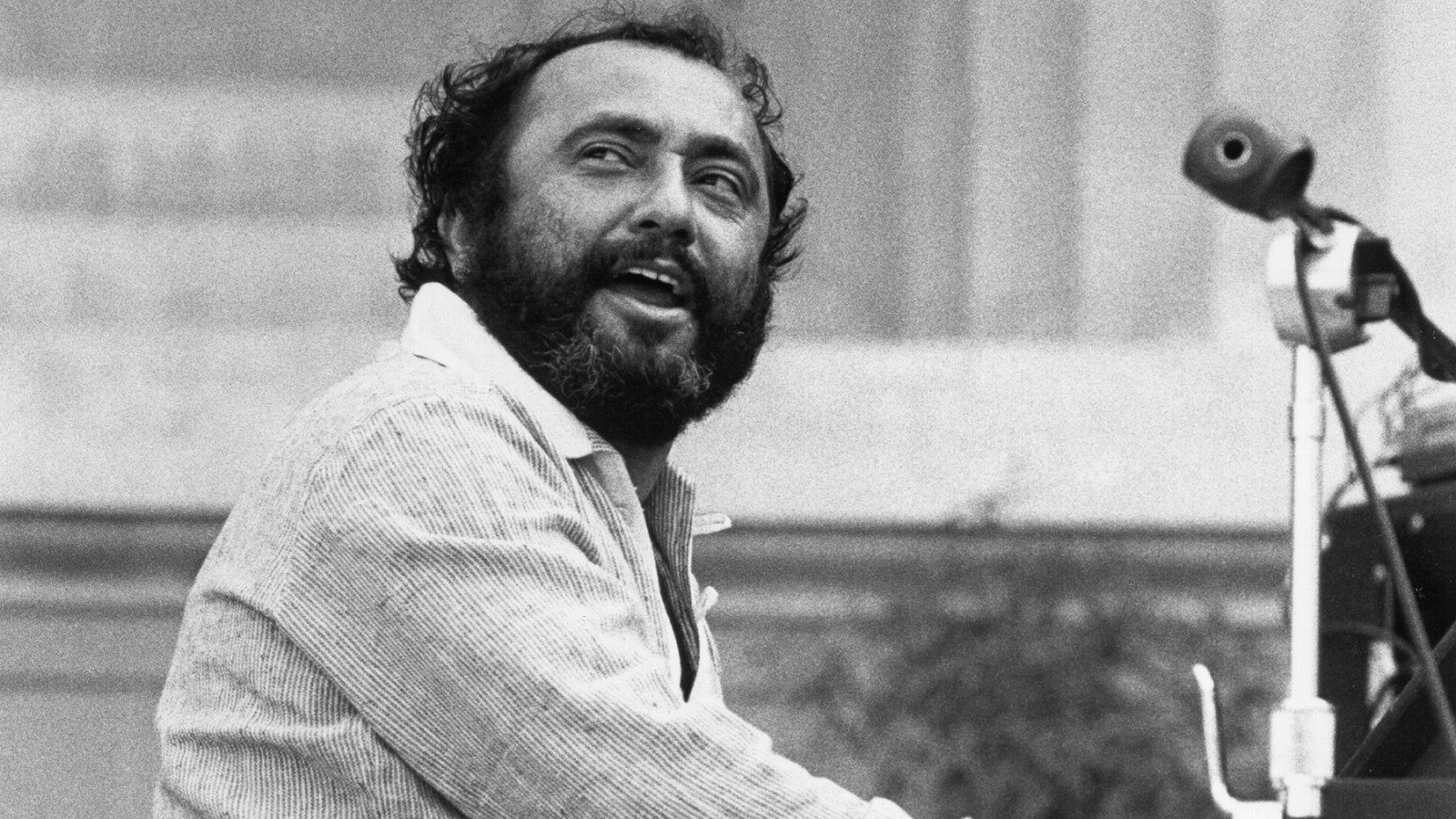The prolific bandleader and pianist leaves behind a sprawling catalog that spans Latin jazz, boogaloo, and more
Eddie Palmieri picked up the piano when he was just about eight years old, and he didn’t stop playing until the end. Influenced by his older brother Charlie Palmieri, Eddie, who died on Wednesday at age 88, would go on to become one of Latin music’s most inventive and respected innovators. He wasn’t just a prolific player; he was also a free-minded trailblazer with the skills to back up tons of imagination.
Throughout his lengthy career, the musician would forge new paths in Latin music, experimenting freely with Latin jazz, salsa, and boogaloo, and adding in dashes of everything from psychedelic rock to folk music. He’d go on to win eight Grammys, including the first Best Latin Recording Grammy for 1974’s The Sun of Latin Music.
Many of his songs remain beloved standards that have influenced generations of salsa musicians and other artists. Here are 10 songs that shaped his career and represent the significant moments in his repertoire over the decades.
-
“Café”

Image Credit: Paul Natkin/Getty Images A sensuous, darkly hued son montuno, “Café” was probably the first track where Palmieri reshaped the Afro-Latin formats that he grew up with into something personal – and deeply transcendent – while keeping the groove glued to the dancefloor. Two years later, Congolese rumba giant Franco and his O.K. Jazz orchestra recorded an endearing phonetic version of the song, underscoring the global reach of Palmieri’s genius.
-
“Azúcar”


Image Credit: Frans Schellekens/Redferns/Getty Images Don’t miss the 1:44 mark, when the call-and-response vocals by Ismael Quintana and the coro quiet down. Alone with the rhythm section, Eddie’s piano glides forward like velvet — mathematically precise, radical and playful. “Azúcar” is more than Palmieri’s finest moment. This nine-minute gem may very well be the quintessential salsa anthem of all time.
-
“Ay Qué Rico”


Image Credit: Skip Bolen/WireImage Palmieri’s surprise foray into the boogaloo fad of the late Sixties underscored his inability to make frivolous music of any kind. Sure, the opening cut of Champagne, “Ay Qué Rico” checks all the boxes with breathy female choruses and swanky hand clapping. But there’s a royal grace to the throaty lead vocals by Joe Cuba veteran Cheo Feliciano, and extra weight to the bass lines by Cuban master Cachao. Palmieri’s chords, as always, are great fun.
-
“Justicia”


Image Credit: Carlos Chavez/Los Angeles Times/Getty Images It was a matter of time before Palmieri’s iconoclastic tendencies seeped into the lyrics of his songs. The title track of another classic album, “Justicia” decries tyranny and discrimination, demanding social justice for Puerto Ricans and Black people. Quintana’s ragged vocalizing was the perfect vehicle for the keyboardist’s socio-political creed.
-
“Helado De Chocolate”


Image Credit: Gary Friedman/Los Angeles Times/Getty Images Most of Palmieri’s output is so joyous and visceral that it’s easy to forget how elegant and smooth he could also be. He explored this refined persona on his two albums with vibes master Cal Tjader, and also on this chic instrumental off the Superimposition album. His passion for cosmopolitan jazz shines through.
-
“Vámonos Pa’l Monte”


Image Credit: Pat Carroll/NY Daily News Archive/Getty Images Palmieri’s ideological ruminations contemplated an escape from the depression of big urban centers and into the simple joys of the Caribbean countryside. As always, the message was transmitted through a dense jungle of sound — the psychedelic organ lines are played by his brother Charlie, while Alfredo ‘Chocolate’ Armenteros’ trumpet riffs are lethal.
-
“Puerto Rico”


Image Credit: Jack Vartoogian/Getty Images Just before Ismael Quintana left Palmieri for the questionable benefits of a solo career, he lent his vocals to this exuberant track off the Sentido LP — a paean to the wondrous island where salsa germinated. “Puerto Rico” combines an accessible chorus about la isla del encanto with Eddie’s off-the-charts piano crescendo and a swampy baritone sax riff.
-
“Una Rosa Española”


Image Credit: Paul Natkin/Getty Images During the Seventies, Palmieri’s fascination with psychedelia, sprawling compositions and electronic keyboards brought him closer to rock’n’roll than any other salsero. Recorded with teen vocalist Lalo Rodríguez, The Sun of Latin Music projects an aura of daring reinvention. Here he combines a musty, proud contradanza with his Spanish take on The Beatles’ “You Never Give Me Your Money” — one of the most brilliantly eccentric moments in the annals of tropical music.
-
“El Día Que Me Quieras”


Image Credit: David Redfern/Redferns/Getty Images By the early Eighties, a new style of progressive salsa had incorporated lush textures and symphonic arrangements — a grand panorama where el maestro felt right at home. The opening song of the stark White Album, “El Día Que Me Quieras” enlists Cheo Feliciano at his vocal peak for a ferocious workout that kicks off with a misty tango intro before accelerating into salsa dura mode.
-
“Ritmo Caliente”


Image Credit: Frans Schellekens/Redferns/Getty Images Now in his sixties, Palmieri experienced a fit of nostalgia and resurrected the old Perfecta repertoire. His playing was as vital as ever, and added a sheen of good humored warmth to songs like “Ritmo Caliente.” Nuyorican vocalist Hermán Olivera was a flawless addition to his orchestra, and the Perfecta hits shone in a concert setting during those golden years.



